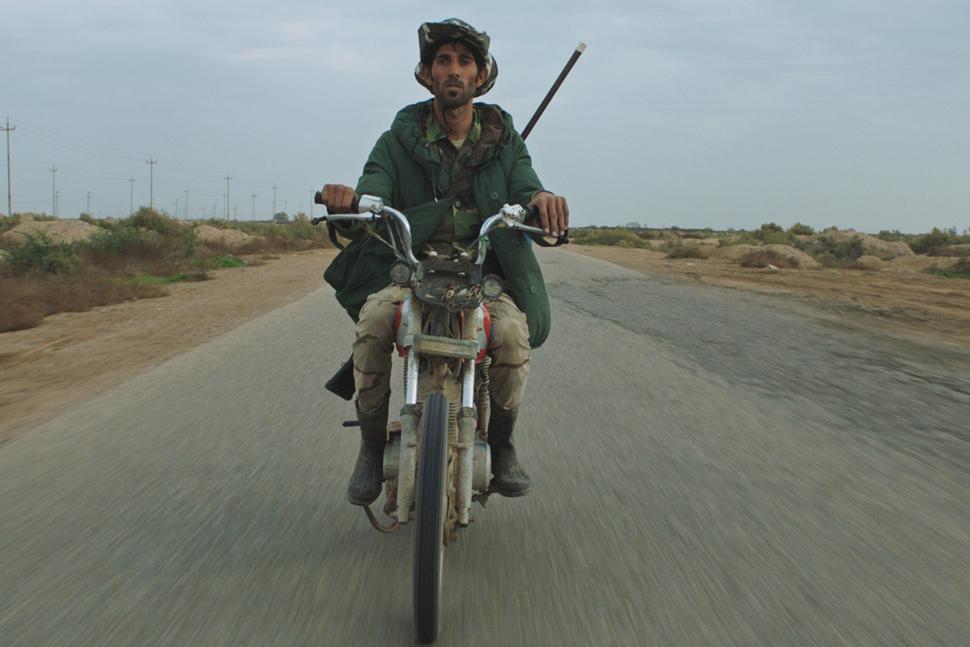The methodology is familiar from Rosi's breakthrough films. Some footage clearly implores us just to watch, the standard line of the observational doc. We're never told as much, but we can be pretty confident the black-clad, wailing women we see in an early sequence are wives and mothers who've lost loved ones in the region's ongoing conflicts. (Not unrelated: the scenes following young soldiers as they go about manoeuvres.) When we watch the psych ward patients rehearsing a play, or a stuttering schoolkid talking us along a wall lined with drawings of terrorist atrocities - as if Brueghel had forcibly taken over the Take Hart gallery - Notturno surely means to show the ways by which this region has started to process its various traumas through art, to dramatise and better understand itself. Some of the material, however, proves more enigmatic, as if Rosi were asking us "what do you think is going on here?". Is the boatman seen punting along a tributary after dark up to no good, on the run, helping out, what? (There are echoes here of those bizarre episodes of Sacro GRA featuring loners poking round in Rome's suburban undergrowth.) Yet Rosi is equally content to train his camera on the comparatively banal sight of a couple sharing a hookah pipe on their balcony: an editorial pause that asserts there are nights in this part of the world where life carries on as normal, and that these countries remain places where actual people actually live and work - or try to live and work, when their routines aren't being disrupted by extraordinary, life-changing events.
Which countries, though? It's problematic that Rosi has smushed the activity of multiple nations together under one thesis: this theme-park idea of one Middle East surely overlooks the fact these countries are navigating distinct challenges, no matter that the West has failed them all in some way. (How will the UK Government's withdrawal of humanitarian aid earmarked for Yemen affect this picture in the years ahead?) It's also becoming clear, film by film, that Rosi isn't beyond cultivating that structured reality that has seeped into the cinema from our trashier television: several interactions here appear to have been set up for the benefit of the camera, rather than caught on the fly. Set Notturno against the often heartstopping spontaneity of 2019's Syria-filmed For Sama, and certain sequences - most obviously those involving the young soldiers - look doubly composed, a bit too framed for their own good; they form an attempt to impose creative control on life's chaos, to fashion theatre out of the real world. You can't blame Rosi for wanting to replicate this particular reality from a safe distance, so no-one gets hurt (and theatre can be truthful too, of course), but stretches of the new film deposit us in an unsettling no-man's-land, somewhere between non-fiction and fiction, truth and contrivance. What matters ultimately may be the quality of Rosi's observation, however artfully he gets there. The cause-and-effect I mentioned earlier as being so central to this filmography is there in Notturno itself: everything it shows us, from the pockmarked buildings to the torn-up ground via the ever-clenched faces of this region's youth, has been touched by conflict. Perhaps only Italy could have nurtured a documentarist with this much Machiavelli in his blood - but Rosi's means are usually sound, and his ends remain unimpeachably humane.
Notturno is available to stream today via MUBI.

No comments:
Post a Comment